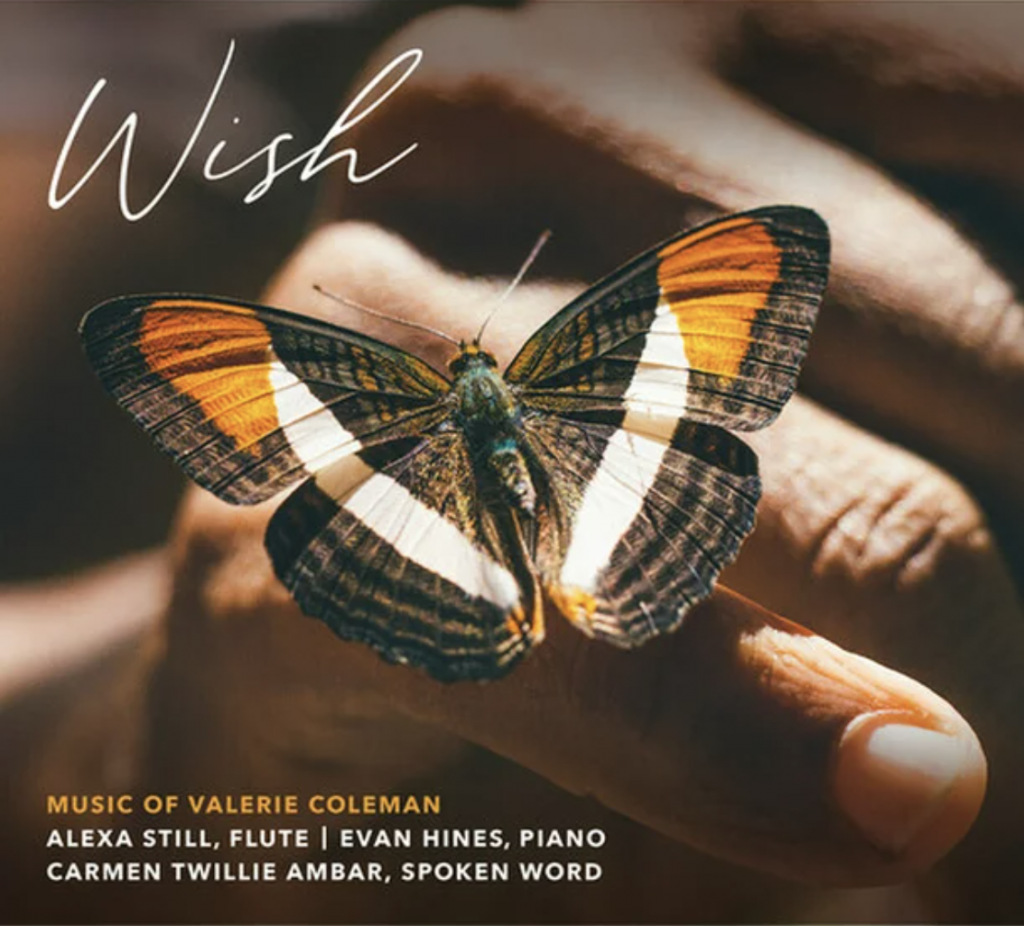by Peter Feher

Alexa Still, Oberlin’s professor of flute, isn’t the only major player involved in the project, though her spirit for exploration and education is what unites the album. Elegy, a lively and pulsing work written for Still in 2015 which winds up here as the closing track, has the flutist backed by an ensemble of her students on instruments ranging from piccolo to contrabass flute, all conducted by Timothy Weiss.
Pianist and recent Conservatory alumnus Evan Hines provides strong and sensitive accompaniment throughout the rest of the recording. Even Oberlin College president Carmen Twillie Ambar gets into the act, setting the stage for three of Coleman’s works by reading poems by Maya Angelou and Fred D’Aguiar that helped inspire those works.
Certainly, Coleman’s compositions share something of the artistic and thematic accessibility of Angelou’s writing. The call of the poem Human Family — to recognize and transcend racial and cultural differences — becomes the musical mashup of Fanmi Imèn, which blends European, Asian, Middle Eastern, and African styles into a technical tour de force.
In all her work, Coleman expands on this basic cross-cultural concept. Legends, a suite of four miniatures depicting stories and scenes from around the globe, from China to Ireland, gestures at a universal idea about the flute and how it can act as a bridge between worlds and traditions. Other pieces stay regional, such as Danza de la Mariposa, a journey through some of the song and dance forms of South America, which Still delivers unaccompanied and with great flair.
Coleman brings an expert’s understanding of her instrument to any idiom she’s composing in. You hear her experience as a flutist in the long, soaring lines she often writes and in her judicious use of extended techniques, from simple harmonics to full-out passages of singing-and-playing.
The most ambitious works on this album add a difficult narrative element that doesn’t always match the facility of the performing or the composing. Amazonia tells a story of deforestation, and Wish (the title track) recounts the voyage of a slave ship on the Middle Passage, but neither piece sounds as challenging as its subject matter. In fact, both works conclude with highly rhythmic dance sections that all too easily suggest a happy ending.
Music doesn’t need a message to make an impact, and here Coleman’s most understated composition proves the point. Requiem Milonga takes up another South American style but leaves the listener to imagine for whom this mysterious, mournful piece might have been written. It could be anyone in the human family.
Published on ClevelandClassical.com September 27, 2023.
Click here for a printable copy of this article



